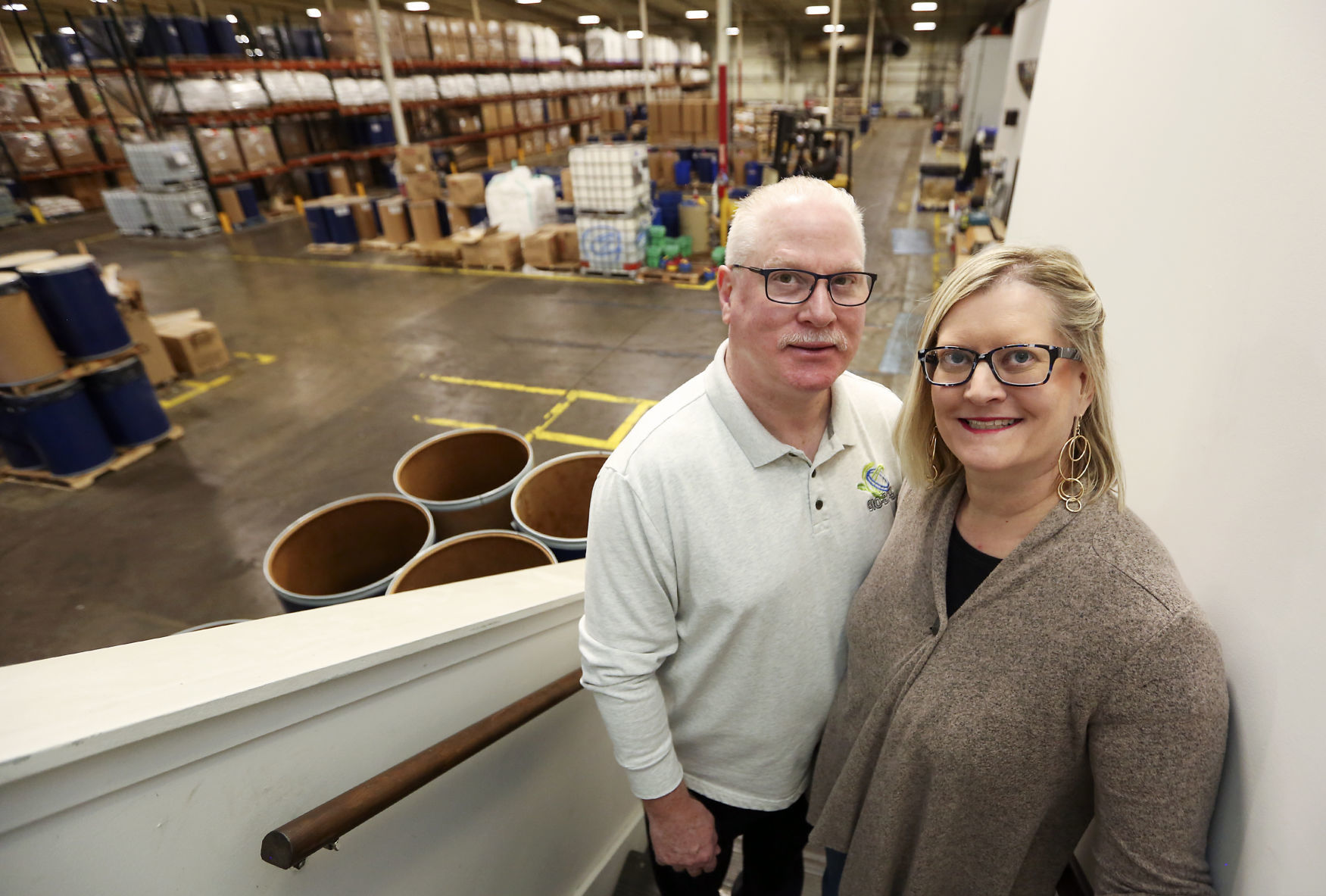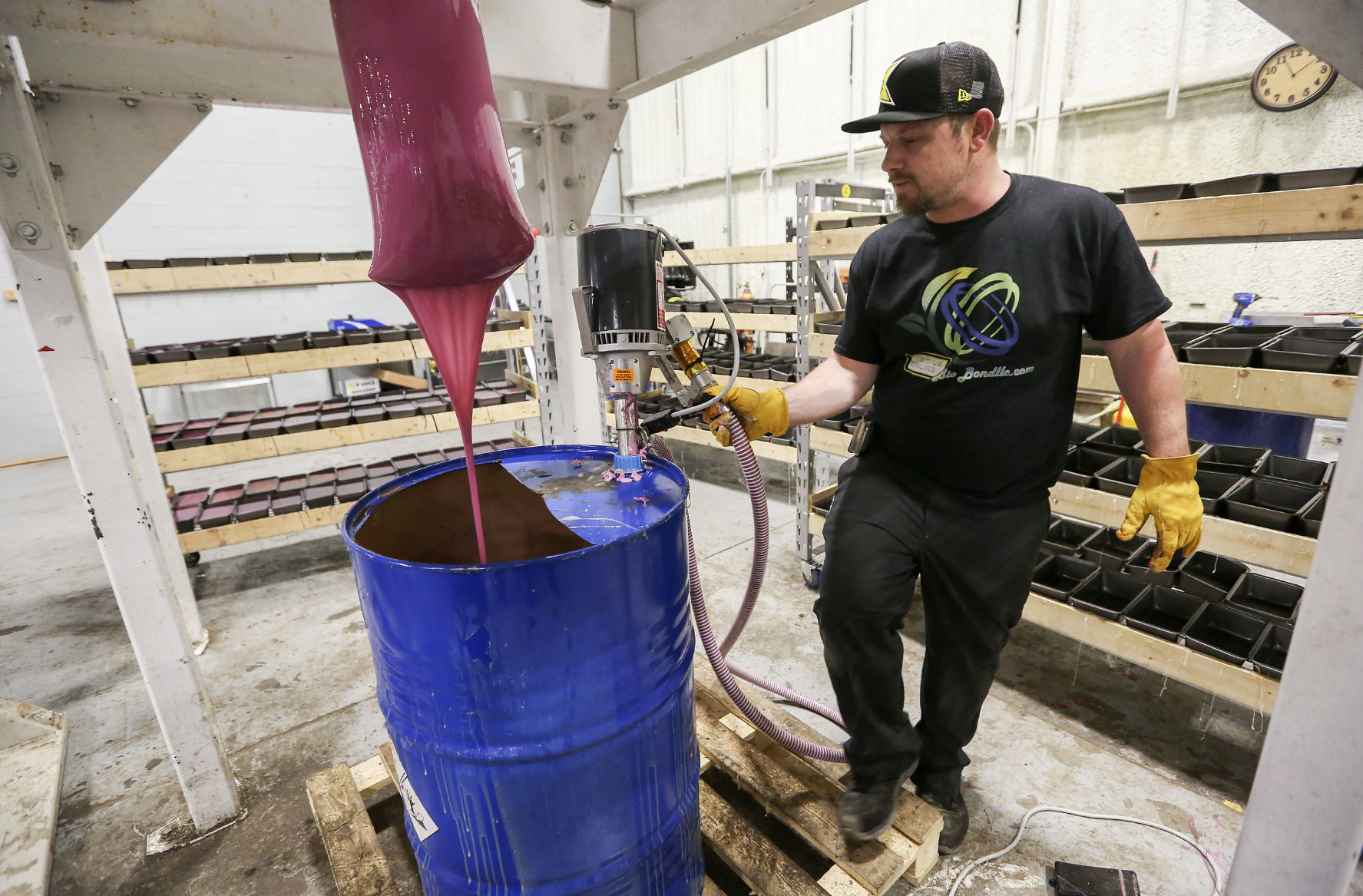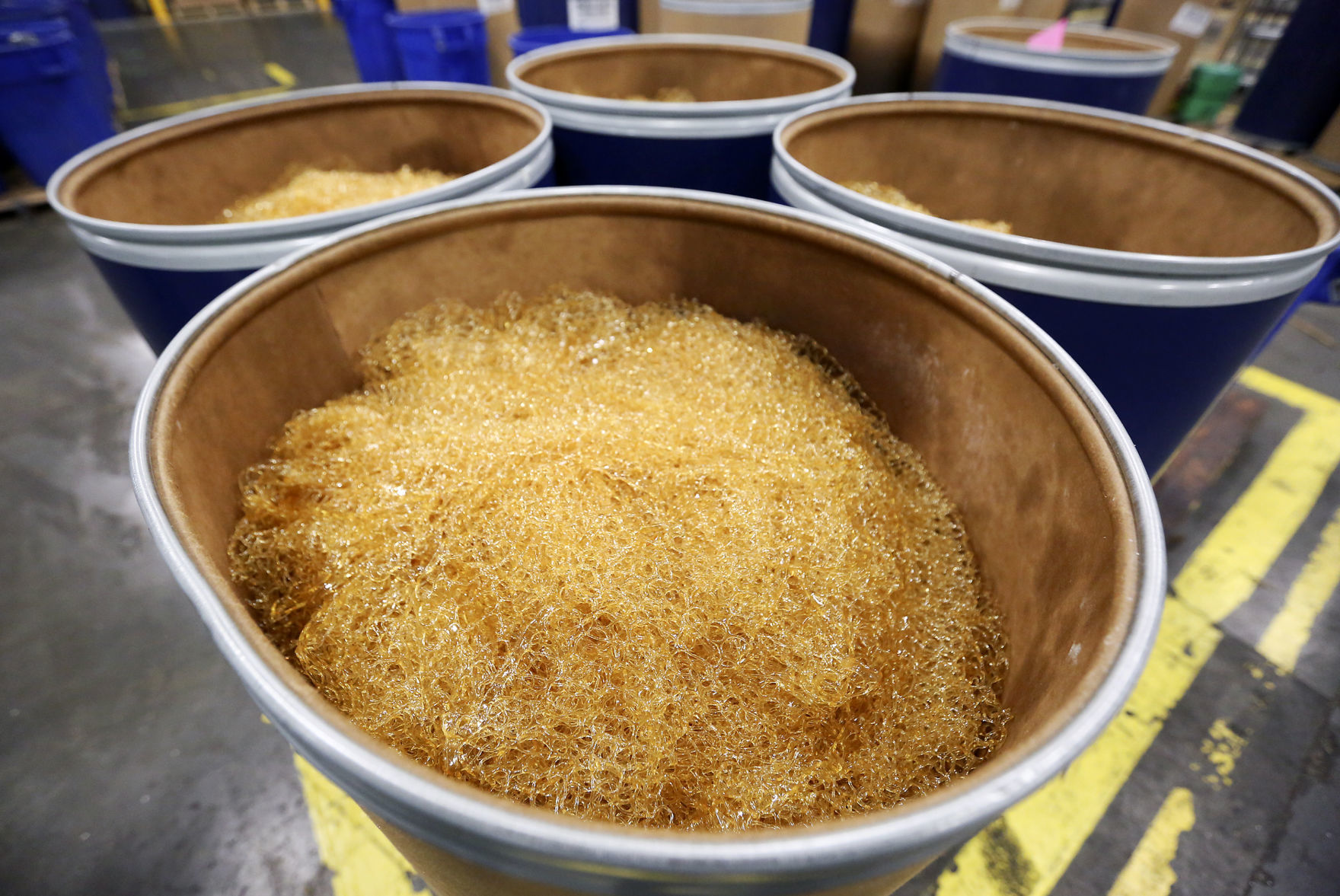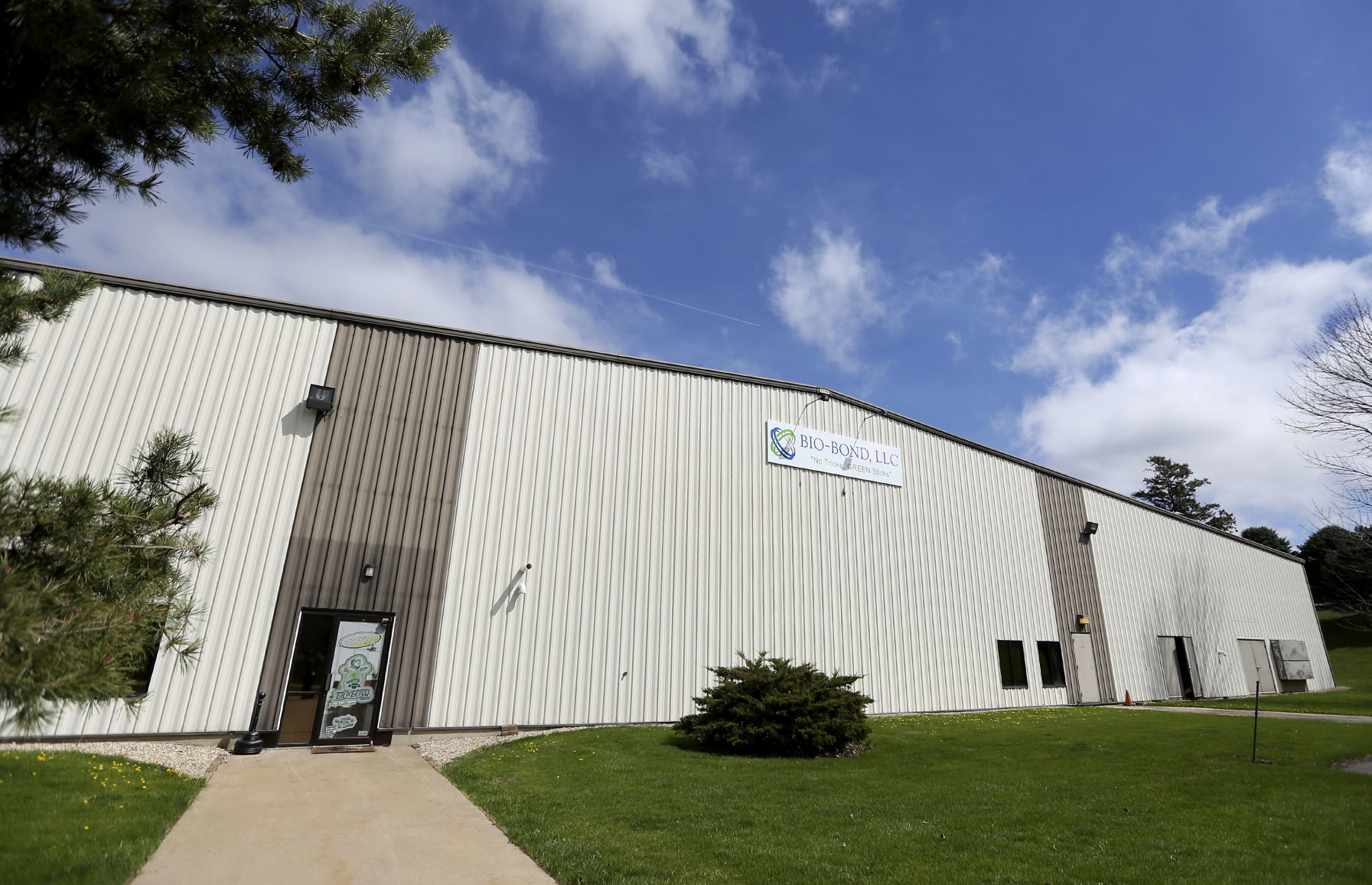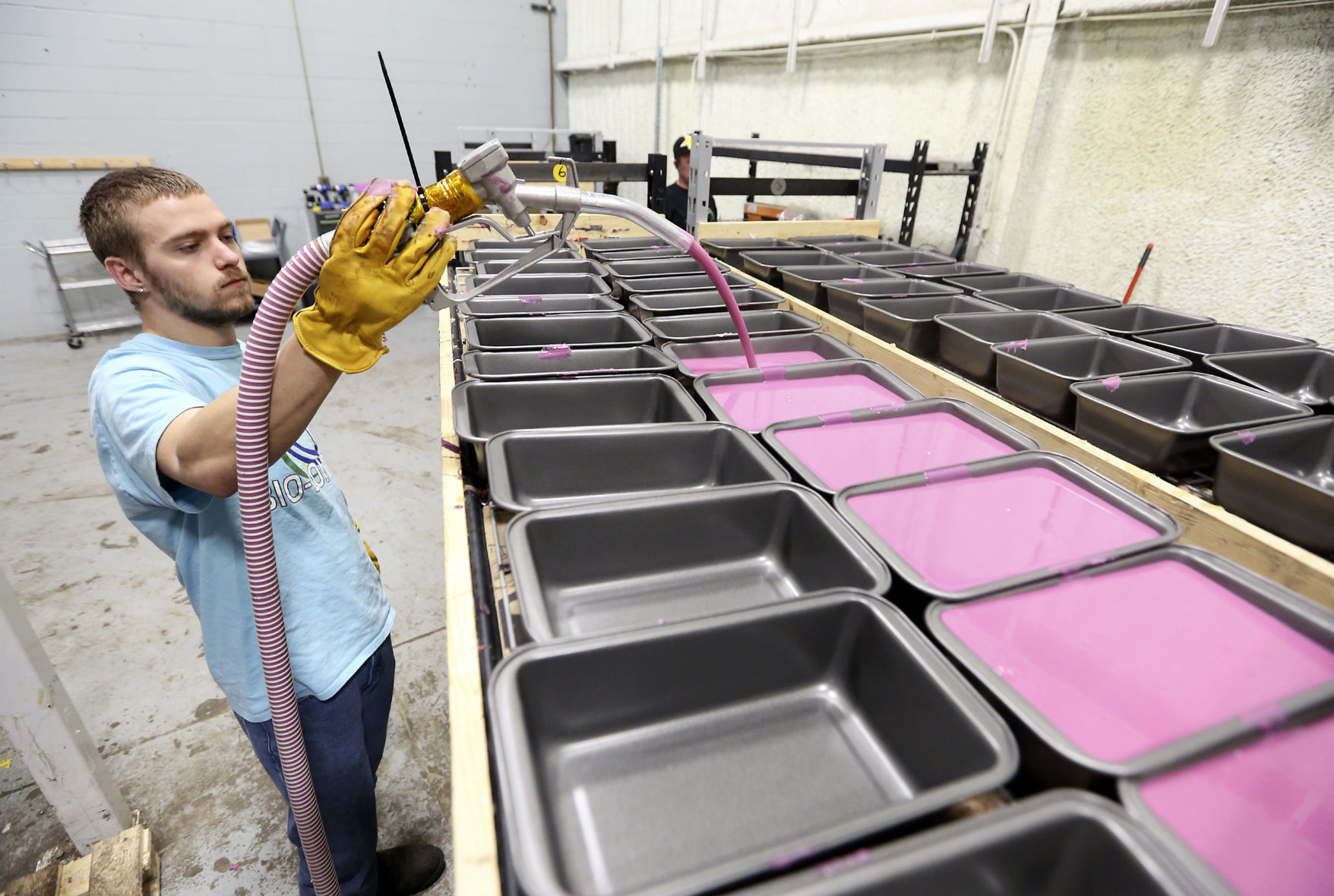Bio-Bond is located at 8625 Enterprise Drive in Peosta, Iowa. For more information, call 563-845-2462.
In our monthly Made in the Tri-States feature, we highlight some of the area’s signature products. Watch for new installments each month. If you have a suggestion of a product for us to feature, send an email to jeff.montgomery@thmedia.com or ben.jacobson@thmedia.com.
PEOSTA, Iowa — Kristin Thomas, the co-owner of Bio-Bond, is not shy when discussing the ambitions of the Peosta-based business she and her husband started four years ago.
“Packaging is the future — just look at Amazon,” she said. “And we are basically going to change the whole packaging industry.”
Located at 8625 Enterprise Drive, Bio-Bond creates biodegradable and compostable adhesives for a wide range of industries, ranging from box manufacturing to book publishing.
The creation of the business marks the culmination of a lengthy career for Kristin’s husband, Richard Thomas, who has worked in the gelatin-based adhesive industry for more than four decades.
He said Bio-Bond already has established a foothold in the publishing industry, where its glue-like products are used to strengthen spines and attach labels on hardcover books.
A walk through the Bio-Bond facility displays the sheer volume of the company’s production, with boxes of completed products placed on racks that reach toward the ceiling. About 300,000 pounds of the company’s best selling adhesive — a product named Bio-Bond 777 — are on hand and ready to ship at all times.
The adhesive is used in a wide range of products, including yearbooks, cookbooks and textbooks.
“We sell it throughout the United States, as well as in Canada and Mexico,” Richard said.
CUTTING WASTEMany of the products constructed within the facility begin with materials that previously would have been bound for a landfill.
Large containers on the factory floor include hundreds of pounds of stamped-out gelatin. According to Richard, this is the byproduct of gelatin previously used to form the capsules of vitamin and supplement pills.
The byproduct, which vaguely resembles netting, historically has been thrown away. By using it to produce adhesive, Bio-Bond officials believe they are cutting down on waste.
“We totally close the sustainability loop,” Richard said. “That is a unique propositional value that we can bring to the table.”
The gelatin byproduct is lifted into 350-gallon, stainless steel kettles. It is mixed at 150 degrees with other ingredients, including vanilla, defoamer, preservatives, water and Epsom salt.
After about three hours, the mixture is released from the bottom of the kettles and placed into pans.
As it cools, the adhesive product takes on the shape of a loaf of bread. It is packaged and prepared for shipping.
LENGTHY CAREERRichard launched his career in the gelatin industry in the late 1970s, initially working as a lab technician in the Boston area. He later worked in manufacturing and sales, giving him a broad perspective of the industry.
Enticed by the tri-state region’s combination of gelatin producers and publishing companies, he moved to Asbury, Iowa, in the late 2000s.
He spent multiple years working as a consultant, providing guidance to adhesive producers as well as publishing businesses, before deciding to roll the dice with his manufacturing venture.
He opened Bio-Bond at 8650 Enterprise Drive about four years ago. In August 2017, it moved across the street to its current location.
In the 20 months since the short move, the company’s growth has been abundant. Bio-Bond initially occupied around 15,000 square feet in the facility, but now takes up 30,000 square feet of space.
Seven people, including the owners, work at the business, Richard said.
NEXT STEPSThe massive stacks of adhesives within Bio-Bond’s facility serve as a testament to the growth the business has achieved in its short run.
While Bio-Bond 777 is the biggest seller, the Thomases noted they sell nine adhesive products.
The couple also has patents pending for a pair of new products, dubbed Bio-Bond 1230 and Cooler-Melt 999.
Richard said the latter of these product offers a new approach to packaging. Adhesives serve a critical role in that industry, creating the interior seam on boxes, as well as helping to seal the top and bottom of the boxes.
It doesn’t hurt that the packaging industry is in the midst of a boom that has no end in sight.
“Everyone is getting lazier and lazier,” Richard said with a smile. “They are going out and shopping less and less and ordering more and more things online through Amazon. That means more and more packaging being done globally.”
But the way in which this packaging is being done could soon change, as companies look for a product that is both effective and environmentally sustainable.
Unlike traditional, petroleum-based products on the market, he said, the adhesives created in Peosta are compostable and biodegradable. Moreover, they are created at 140- or 150-degree temperatures instead of the standard 350 degrees.
Richard believes this ultimately will create safer work conditions for employees.
“A lot of injuries occur with these hot melts and (employees) can burn themselves,” he said. “This could eliminate skin burns.”


